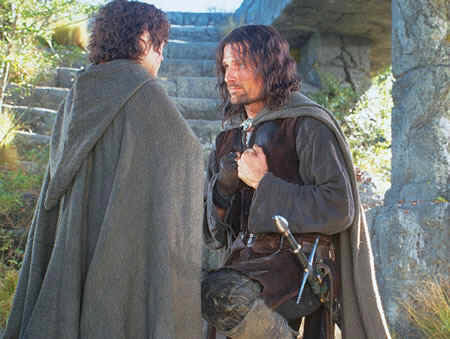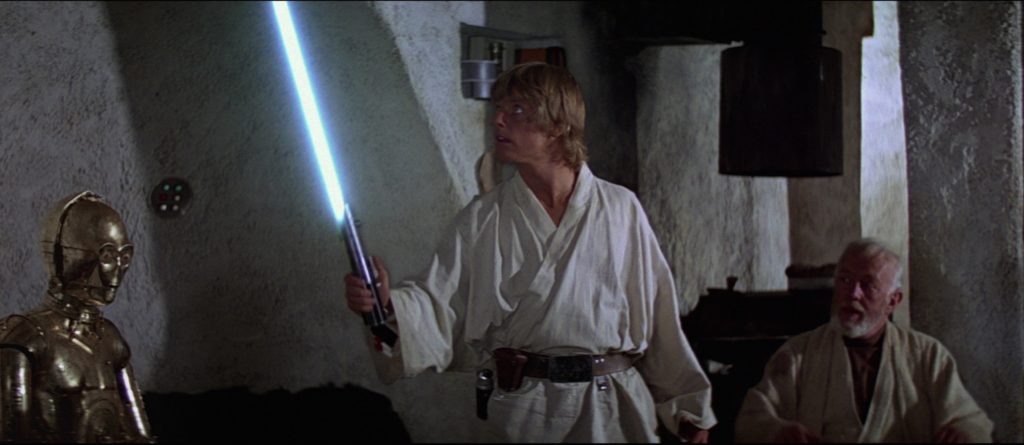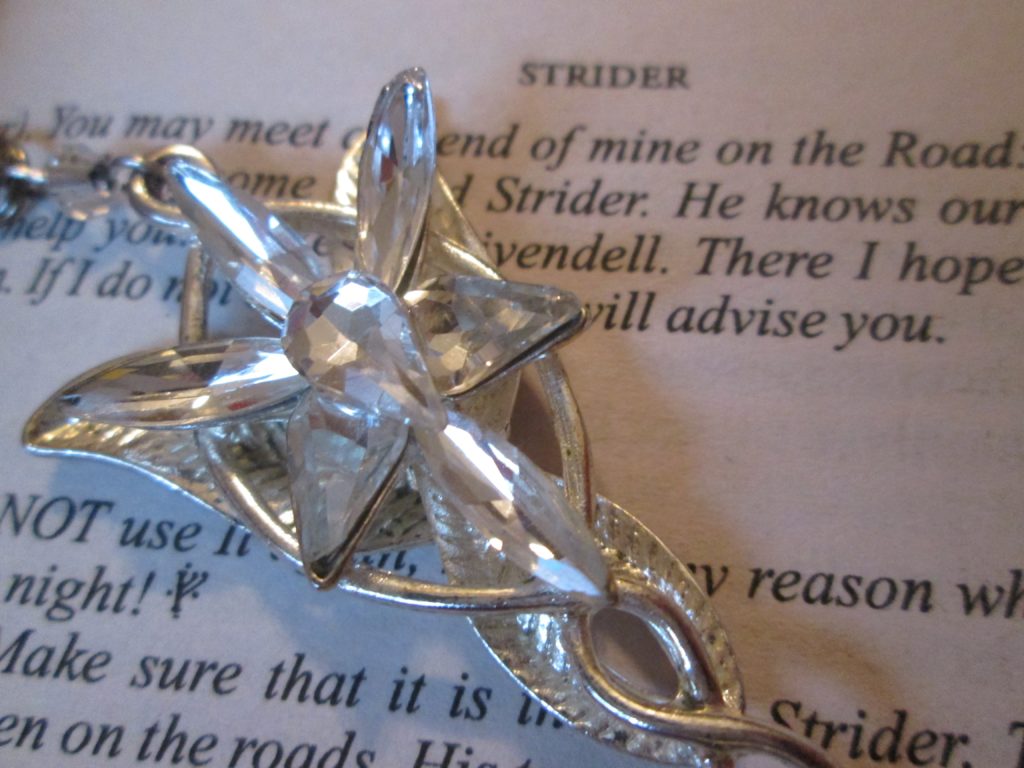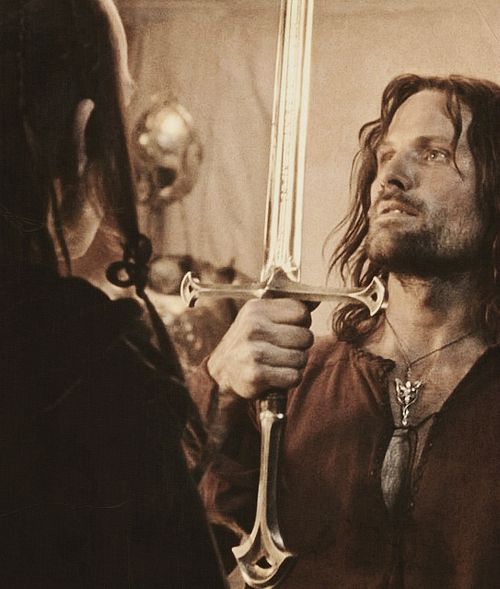March is a busy month in Middle Earth! Today happens to be March 25th, the day the Ring was destroyed. So we’re taking a break from my Aragorn rambling, so I can ramble about someone else: the hobbit who carried the Ring from the Shire to Morder.
Frodo is a very interesting hero, not to mention an unlikely one. Him ending up getting the Ring at all took a lot of unlikely coincidences–or miracles (as perhaps Gandalf would prefer I say).
‘Beyond that there was something else at work, beyond any design of the Ring-maker. I can put it no plainer than by saying that Bilbo was meant to find the Ring, and not by its maker. In which case you also were meant to have it. And that may be an encouraging thought. (The Fellowship of the Ring, 61)
Frodo is not a stereotypical hobbit (he’s Bilbo’s nephew, after all, and I’m not sure anyone could help being a bit “queer” after being adopted by someone like that!) but he’s a hobbit just the same: cheerful, fun-loving, calm, and easily pleased. While he’s adventurous, yes, a tramp around the Shire or a pony-ride as far as Rivendell might have felt like adventure enough.
And he could have chosen that–all he would have had to have done was sit quietly and keep his head down at the Council of Elrond. No one asked him to take the Ring anywhere.
Still no one spoke. Frodo glanced at all the faces, but they were not turned to him. . . An overwhelming longing to rest and remain at peace by Bilbo’s side in Rivendell filled all his heart. (The Fellowship of the Ring, 303)
But no one offered to do it himself instead.
Frodo ventured his well-known line: “I will take the Ring, though I do not know the way (The Fellowship of the Ring, 303)” into a waiting silence.
He could have sat quietly and let the moment pass. He could have said he wasn’t qualified. Because let’s be honest: it would have been true. He was sitting in the presence of many who had walked the length and breadth of Middle Earth, while he was literally on his first trip beyond the Shire’s borders. He had little experience, limited knowledge of the Ring itself, no knowledge of the lands between the Misty Mountains and Morder. But no one else was volunteering.
The I’ll-wait-for-someone-more-qualified argument sounds humble and prudent. But what if no one more qualified ever shows up? Frodo could have let Elrond deal with the Ring, he could have followed Boromir to Minas Tirith and let some warrior of Gondor handle it–hypothetically. But what if they couldn’t? What if they wouldn’t?
So Frodo took it, even though, in the end, it cost him everything.
Tolkien was a great fan of unlikely heroes, but maybe that’s why his world appeals to so many people. I believe in unlikely heroes. Look at the Bible–the people God chose weren’t always the biggest, the strongest, the best. They weren’t always qualified–but God was.
Tolkien wove a tale around a small, frightened hobbit, who was willing to believe he could do great things. We might not be qualified, but the Author of our story is, if we’re willing to take the risk.
But that’s not the way of it with the tales that really mattered, or the ones that stay in the mind. Folk seem to have been just landed in them, usually — their paths were laid that way, as you put it. But I expect they had lots of chances, like us, of turning back, only they didn’t. And if they had, we shouldn’t know, because they’d have been forgotten. (The Two Towers, 696)
Check out these posts if you want to hear more about hobbits today!






